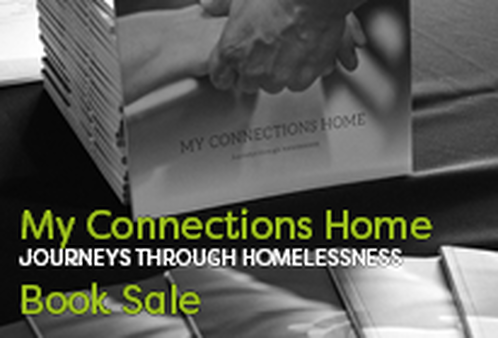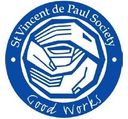
My Connections Home
by Rosemary Bunker
Hunter Homeless Connect and Compass Housing published 'My Connections Home' - nine profiles of formerly homeless Hunter residents. Click here to purchase the book. This is our writer's response to the book:
How can I stand apart when I am implicated in your fate? As you tell your stories, I am one with you, branded homeless, hobbled and handcuffed. We struggle to find our way. The road turns in on itself. Is there no exit? No light ahead? We cling to hope - a sign? A guide? We are lost and alone, denied a compass to point the way home.
We did not ask to travel this road through homelessness. The blows of our loved ones, our husbands, wives and lovers, drove us from home. It was war, our children and us the casualties, sleeping in refuges, sleeping cold and scared in cars, in parks, tossing on friends’ sofas, dreaming of a hot shower, desperate for food. We lost our jobs, our homes, our families.
‘Give me a drink, give me a shot,’ we cried to deaden the pain of being alive. Traumatised, we lost the skills to live. We spiralled down the black hole. Some did not come back.
We wanted to get our lives in order. The stigma of homelessness was writ large across our foreheads. Employers, accommodation providers, relatives – all turned away. We felt like the scum of the earth. Abandoned by family and friends we learnt love does not exist here. How can our lives be scrapped so quickly? We did not see homelessness coming, did not choose to be homeless, did not choose to be victims. Life stripped us bare. The process was unrelenting. Naked in the storm we had to survive as best we could.
To read the stories of the shell-shocked as they journey through homelessness is to grieve for the irreparable loss they felt. I am outraged that such suffering exists in this city of plenty. I respond with tears to the dignity and strength the photographs express of subjects willing to expose their private lives. I am heartened by the reflections many make on the experience of homelessness as with new insight they nurture the seeds of a future they begin to see as possible. They make plans to work with counsellors to reclaim lost parts of themselves; to study; to recognise the cost of wrong choice. They hope life for their kids will be better.
My Connections Home frames the stories of many journeys through homelessness. I hold the book and marvel at the silken feel of its cover that tells not of pain, failure and struggle but of warmth and hope. Light rises in the cover photograph under and around strong hands that are supporting the hands of another. The photograph takes us to the centre of the journey through darkness. Darkness exists but has not triumphed. It has been relegated to the background. I turn the book over and experience joy in the embrace of the man and his dog, in the power of a relationship that says ‘we have each other.’ People and tables of food surround them in parkland. The environment is alive. It marks a hopeful stage in the journey through homelessness.
Pivoting between the hopelessness of a non-existent future and the hopefulness of a future with meaning, the stories impress me with the simplicity of their reporting style. Their directness carries the stamp of truth. I am proud to know these people. I laud the restraint shown in the editorial process and the sensibility and aesthetic awareness of the many who contributed to the wholeness of the book design. I am awed by the scope of human experience within its covers and the support of people that can kindle new life.
by Rosemary Bunker
Hunter Homeless Connect and Compass Housing published 'My Connections Home' - nine profiles of formerly homeless Hunter residents. Click here to purchase the book. This is our writer's response to the book:
How can I stand apart when I am implicated in your fate? As you tell your stories, I am one with you, branded homeless, hobbled and handcuffed. We struggle to find our way. The road turns in on itself. Is there no exit? No light ahead? We cling to hope - a sign? A guide? We are lost and alone, denied a compass to point the way home.
We did not ask to travel this road through homelessness. The blows of our loved ones, our husbands, wives and lovers, drove us from home. It was war, our children and us the casualties, sleeping in refuges, sleeping cold and scared in cars, in parks, tossing on friends’ sofas, dreaming of a hot shower, desperate for food. We lost our jobs, our homes, our families.
‘Give me a drink, give me a shot,’ we cried to deaden the pain of being alive. Traumatised, we lost the skills to live. We spiralled down the black hole. Some did not come back.
We wanted to get our lives in order. The stigma of homelessness was writ large across our foreheads. Employers, accommodation providers, relatives – all turned away. We felt like the scum of the earth. Abandoned by family and friends we learnt love does not exist here. How can our lives be scrapped so quickly? We did not see homelessness coming, did not choose to be homeless, did not choose to be victims. Life stripped us bare. The process was unrelenting. Naked in the storm we had to survive as best we could.
To read the stories of the shell-shocked as they journey through homelessness is to grieve for the irreparable loss they felt. I am outraged that such suffering exists in this city of plenty. I respond with tears to the dignity and strength the photographs express of subjects willing to expose their private lives. I am heartened by the reflections many make on the experience of homelessness as with new insight they nurture the seeds of a future they begin to see as possible. They make plans to work with counsellors to reclaim lost parts of themselves; to study; to recognise the cost of wrong choice. They hope life for their kids will be better.
My Connections Home frames the stories of many journeys through homelessness. I hold the book and marvel at the silken feel of its cover that tells not of pain, failure and struggle but of warmth and hope. Light rises in the cover photograph under and around strong hands that are supporting the hands of another. The photograph takes us to the centre of the journey through darkness. Darkness exists but has not triumphed. It has been relegated to the background. I turn the book over and experience joy in the embrace of the man and his dog, in the power of a relationship that says ‘we have each other.’ People and tables of food surround them in parkland. The environment is alive. It marks a hopeful stage in the journey through homelessness.
Pivoting between the hopelessness of a non-existent future and the hopefulness of a future with meaning, the stories impress me with the simplicity of their reporting style. Their directness carries the stamp of truth. I am proud to know these people. I laud the restraint shown in the editorial process and the sensibility and aesthetic awareness of the many who contributed to the wholeness of the book design. I am awed by the scope of human experience within its covers and the support of people that can kindle new life.

